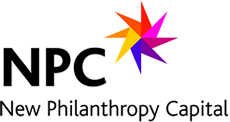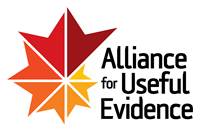This resource provides an overview of different tools and resources, with links to further information, that nef consulting uses for evaluating and assessing impact. These include:
- Social Return on Investment (SROI)
- Multi-Criteria Appraisal (MCA)
- Outcomes Evaluation
- Cost-Effectiveness Analysis (CEA)
- Social Cost-Benefit Analysis (SCBA)
- Social Value Appraisal
- Local Multiplier 3 (LM3)
- Prove and Improve Toolkits
This paper, by Daniel Fujiwara for HACT, sets out the methodology and analytical approach underlying the work on community investment and social value. The paper explains the Well-being Valuation approach, provides details of the datasets that the analysis draws on, describes the statistical method in technical detail, and introduces the broader theory behind social impact.
This is the first catalog of methods for the Double Bottom Line Project that for-profit and nonprofit social ventures and enterprises can use to assess the social impact of their activities. It analyses feasibility and credibility of 9 methods and provides examples of them in use:
- Theories of Change
- Balanced Scorecard
- Acumen Fund Scorecard
- Social Return Assessment
- AtKisson Compass Assessment
- Ongoing Assessment of Social Impact
- Social Return on Investment
- Benefit-Cost Analysis
- Poverty and Social Impact Analysis
These case studies from Social Audit Network are intended to share experiences between organisations working in the social economy around their social impact reporting, and also to share with local authority commissioning and procurement staff to show them what can be achieved! The case studies are not just about social accounting and audit (SAA), but include where organisations have used SAA as a framework alongside social return on investment (SROI), cost benefit analysis (CBA), and other tools.
SImetrica specialises in cutting-edge research on social impact analysis and policy evaluation. SImetrica’s resources include publications on a wide range of disciplines related to social impact analysis, including:
- The philosophy of policy evaluation (normative ethics);
- The application of social impact frameworks including cost-benefit analysis, cost-effectiveness analysis, cost-utility analysis and social return on investment;
- Statistical and econometric analysis for causal inference;
- Valuation of non-market goods and outcomes;
- Behavioural science.
The Dartington Social Research Unit is a charity that seeks to improve designing and delivering services for children and their families by promoting the increased use of evidence of what works. Their work spans education, health, social care and criminal justice systems. Their work involves data on children’s needs, information about what works, cost-benefit analysis and how money is spent at the local level. Projects include Investing in Children, A Better Start, Design and Refine and Into One Place.
This report by nef consulting uses an extended Social Cost-Benefit Analysis (SCBA) to compare and contrast the benefits and investment of CARE International’s Adaptation Learning Programme (ALP) in Dakoro, Niger.
The report is available in French and English.
This working paper, by Julian Cox, Matt Bowen and Oliver Kempton for New Economy, documents and discusses research work being carried out in Greater Manchester to understand and identify if it is possible to robustly value social outcomes. The research has focused on the ongoing Community Budget programmes across Greater Manchester. The paper presents a methodology for valuing social outcomes and suggests how such an approach can be used and taken forward by practitioners, commissioners, analysts and suppliers of programmes across Greater Manchester.
This paper by Daniel Fujiwara and Ross Campbell considers three techniques for the valuation of non-market impacts in terms of their strengths and weaknesses. Revealed preference and stated preference are two ‘market based approaches’ which have been referenced in the Green Book for some time. This paper introduces a third approach, involving the measurement of subjective well-being, which has been gaining currency in recent years.





